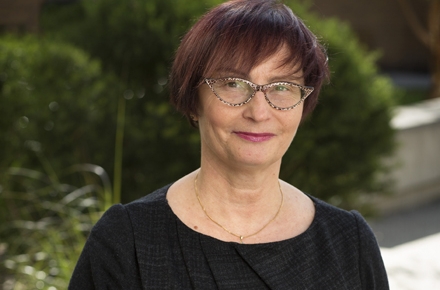Vale Professor Rikki Kersten FAIIA

The Australian Institute of International Affairs was saddened to hear of the death last night of one of its fellows, Professor Rikki Kersten. Along with being a trusted mentor to many Australia-based researchers on Asia, Kersten was a significant figure in the study of modern Japanese politics and also fostered academic ties between the Netherlands and Australia. Educated at Wollongong, Adelaide, and Oxford, Kersten spent ample time during her education at the University of Tokyo’s Institute of Social Science and Keio University, among other institutions. Before resuming life as an academic, she worked for five years in the Australian foreign service, posted to the political section of the Australian Embassy in Tokyo.
Kersten’s research focused on Japanese political thought. Notably, her graduate work and first book analysed the thinking and influence of Maruyama Masao, Japan’s most influential post-war liberal political philosopher. It remains the quintessential volume on Maruyama originally published in English. Kersten’s early study of Maruyama would guide exploration through her subsequent numerous publications on the political dynamics of the Japanese left. From 2011, she began to focus more intently on Japanese security, in particular, the dynamics of the U.S.-Japan Alliance. She was made an AIIA Fellow in 2022 and was about to embark on an ambitious project on the history of Australia-Japan relations, funded fully by the Department of Foreign Affairs and Trade.
Early in her academic career, she worked at the University of Sydney, becoming the director of the university’s Research Institute for Asia and the Pacific. She later accepted a position at Leiden University in the Netherlands, where she became professor of Modern Japanese Studies and head of Japanese Studies. In 2004 with Professor Axel Schneider, she won a VICI grant, one of the largest and most prestigious grants awarded by the Dutch government, to research historical consciousness and the future in China and Japan. In 2005, she and Schneider founded the Modern East Asia Research Centre, now the Leiden Asia Centre, to promote cutting edge research on the politics and societies of Japan, China, and Korea. She moved back to Australia in 2006, joining the Australian National University (ANU) as dean of the College of Asia and the Pacific and dean of the Faculty of Asian Studies. She was dean of Arts at Murdoch University in Western Australia from 2013, where she was executive director of the Asia Research Centre from 2018. She moved back to Canberra in 2020.
Despite her return to Australia, Kersten kept up with her friends and colleagues at Leiden, promoting ties between Australia and the Netherlands in the field of Asian studies and travelling frequently to Holland. In 2006, she founded the Australia-Netherlands Research Collaboration focusing on the study of Southeast Asia. AIIA National Executive Director Dr Bryce Wakefield first met Kersten during one of her visits soon after he started working as a lecturer at Leiden in 2012. “Although she had not worked there for some time, Rikki was very well known among the faculty of the university,” he recalls. “Rikki had an outsized influence on many a career. It was through Rikki that I came to know of the AIIA, when she persuaded me to write for Australian Outlook. Had I not met her, I would not be in this position today.”
Indeed, Dr Lauren Richardson, a lecturer in the ANU’s Department of International Relations and Kersten’s former PhD student notes that “Rikki was an incredibly generous mentor and an inspiring scholar and public intellectual. Many of her former students have gone on to become Japanese specialists in academia and government, and she continued to nuture their careers long after they graduated.” According to another of Kersten’s former PhD students, Dr Pichamon Yeophantong, now head of research and associate professor at the Centre for Future Defence and National Security, Deakin University at the National War College, “Not only was Rikki known as an incredibly dedicated scholar of Japan, her generosity and spirit also distinguished her as a compassionate human being. Indeed, Rikki’s legacy speaks to how a person’s greatness lies not with what they have, but in what they give.” Yeophantong, who visited Kersten in hospital several times in recent months, notes that “Rikki lives on in our fond and vibrant memories of her, as well as the enormous impact that she has had on our academic careers—and lives.”
Kersten passed away on the evening of 21 December. She had been in and out of hospital in Canberra, battling cancer and associated symptoms for more than one year. In the final year of her life, she received an outpouring of support from friends across the globe as she kept them updated on her condition. We at the AIIA will miss Rikki. Our thoughts at this time are with her family.